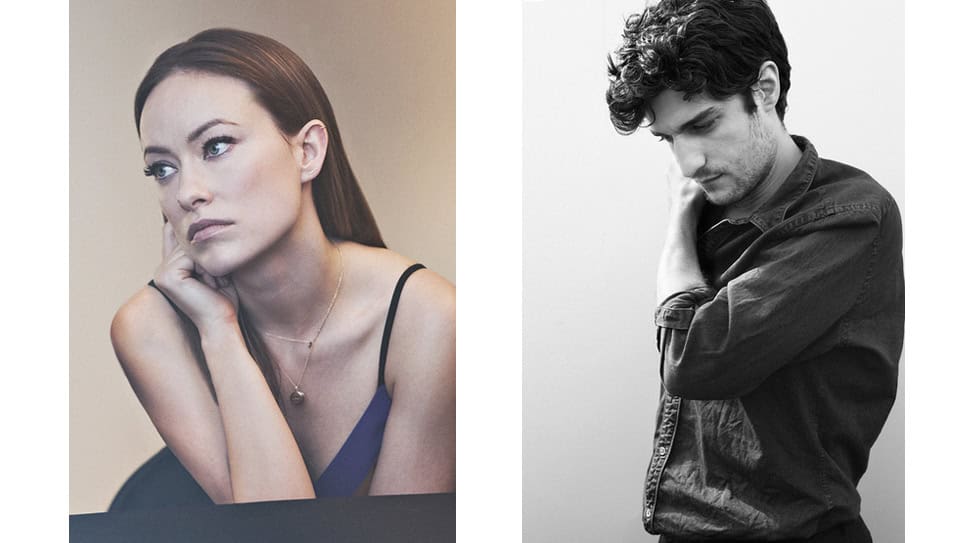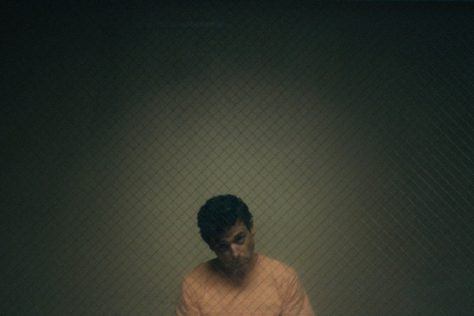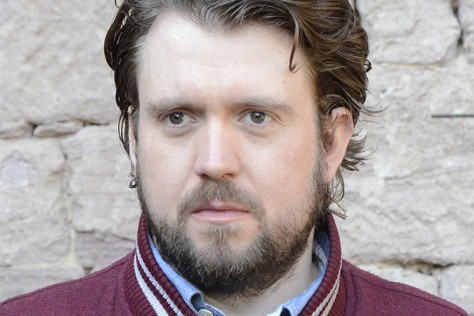“I like working with directors that I like again and again. I’ve done eight movies with Richard Linklater because when I’m in front of his camera, it’s total peace. There’s no agenda with each other. I have that with some other directors, too, where the camera becomes incredibly friendly. It becomes a friend whereas, when there’s an angry and manipulative eye, it becomes an enemy to be dealt with. It’s not that you can’t do good work that way, but you do ‘correct’ work. ‘Correct’ work isn’t nearly as interesting.” – ETHAN HAWKE, actor/filmmaker
“It’s impossible for me to be fake and spontaneous on social media. I cannot fake a relationship. I can’t be fake friends with somebody that I don’t know. I respect you, but I don’t know you. That’s the relationship I have with social media.” – STROMAE, musician
“The first film that really changed my life in terms of sound was Eraserhead. Alan Splet’s sound design on that wasn’t functional. Even the most amazing sound designers in film illustrate the action. If a spaceship goes by, the sound might be experimental, but it’s still illustrating something. On that film with Splet, they didn’t illustrate—they expressed this whole state of mind, an inner world. I kind of got into noise through that, but it wasn’t so immediate. I saw My Bloody Valentine play live about a year later and when they played “You Made Me Realise,” I was just blown away. That got me into The Jesus and Mary Chain, Sonic Youth, Swans—anything that utilized noise in an active, creative manner.” – PETER STRICKLAND, filmmaker
“When you come to Cannes, it’s almost like you’re in the Olympics and carrying a flag: ‘This is the Norwegian film.’ It’s like the lovely Irish book The Dubliners by James Joyce where the man gets on a chair and says, ‘I’m a nation!’ I think sometimes you feel that way here. Can I just be me?” – JOACHIM TRIER, filmmaker
“I’m incredibly happy and blessed to be where I’m at, but no, I don’t think I’ll ever be satisfied. When you get satisfied, you stopped being an artist.” – SCOOT MCNAIRY, actor
“Working with great directors as a DP, you pick things up from each of them. It could be anything from, ‘Oh that’s probably not how I would want to do things’ to ‘I’ve never seen anyone do that before.’ You learn that treating people this way will get you here and treating people that way is a big problem.” – JODY LEE LIPES, filmmaker/cinematographer
“My line in the script was: ‘Well, because I can.’ When it comes down to it, with all things, it’s about evolution. If I don’t do it, someone else will do it. It’s like putting a red button in front of any human. Inevitably, someone will push it.” – ALICIA VIKANDER, actress
“I don’t feel like I need to represent a country, a sector, a part of a community or a situation. That being said, I’m drawn to the kind of cinema that might generate something. I’m drawn to cinema that has deeper meaning and will create some kind of movement. I’m not talking about a revolution necessarily, but some shift within humanity. I’m looking for something that speaks to me very deeply and has a very meaningful significance. That’s why I find myself dealing a lot with social cinema over the years.” – RONIT ELKABETZ, filmmaker/actress
“I’m not a big fan of a lot of takes. I’m so used to theater where you get one shot every night. So a lot of takes is something that’s beyond me. I run out of ideas!” – AMY MORTON, actress
“This is the perfect example when they say, ‘When you make a movie, you make three movies: you write one, shoot one, and edit one.’” – OLIVIA WILDE, actress
“I think you just have to be really strong about what you want to give out and what you’re comfortable with. The more into your career you get, the more of those questions come to you. It’s about having the awareness about what the journalist wants from you and what the interview is for. You have to be in control of what it is you’re saying. It can be okay as long as you’re able to say, ‘Shut the fuck up!’” – OLLIE ALEXANDER (YEARS & YEARS), musician/actor
“I used to wonder if I only liked movies because I didn’t like sports, but that’s not true. Movies were never a substitution for anything. What I do now as a filmmaker has more resemblance to my childhood playing with toys than anything I did in school. All you ever want as an artist is to be free. As a child, you have this without even trying. I try to go back to that time and remember as much as possible this sense of possibility, freedom and imagination. I also have great producers. They allow me to play.” – DAMIÁN SZIFRÓN, filmmaker
“I’m very proud of the films that I’ve done up until now, but I had reached a point before Smashed where I had done so much thriller-action or horror movies. I needed to prove to myself that I could do something outside of that. I wanted to do something that was more challenging from an actor’s standpoint. Smashed was something I really fought for because I needed that as an actor. As soon as I did it, there was no turning back.” – MARY ELIZABETH WINSTEAD, actress
“Who I am and being true to that will always keep me to the left of everything. I don’t ever expect to be mainstream. But that’s never been my goal anyway. Fuck everybody. I’ve been doing this for 20 years and I’ve always heard what people found valuable about me. And by that, what I really mean is, what people found not valuable about me. It’s like, you only have this many Tweets or followers! You’re only worth this much, so we can’t make our movie with you. You’re not worth anything overseas! You know not to take that to heart intellectually, but you still hear it. The older I get, the more important it is to me to really have my own understanding of all that stuff and no one else’s. I’m done feeling bad about who I am.” – ALEKSA PALLADINO, actress/musician
“Thanks to [François Truffaut, Jean-Luc Godard and Steven Spielberg], I’m still in love with my job. I’ve been doing this for forty years. I very often meet actors that, after twenty years, don’t care about making films anymore. It’s like falling in love because keeping the passion alive takes a lot of work. It can be fleeting.” – NATHALIE BAYE, actress
“I accidentally brought mushrooms into Singapore. It was in my tux and I didn’t find out until I was in Seoul when the lady at the dry cleaner’s pulled out this baggie. It was like, ‘Oh. My. God.’ That truly scared the shit out of me.” – MATTHEW HEMERLEIN (LO-FANG), musician
“We know what it’s like to be happy, we wish we could be happy all the time, and with people that are happy, it’s like, ‘Oh, okay. I don’t have to worry about you.’ All of us do this thing like, ‘Why is that person so confused? How do I make sure I don’t get there?’ I think happy people are the problem solvers. We watched the Kurt Cobain documentary last month and we were kind of like, ‘Poor me! I sold 30 million records and everyone loves my music.’ There is a part of you that goes, ‘Man, why was he so upset?’ People have demons.” – TOM HOWIE (BOB MOSES), musician
“I was sort of floating about through high school as a class clown, getting OK grades, but not really sure what I wanted to do. I was actually pretty close to joining the Navy. But I saw my brother up on stage in the play South Pacific. I knew my brother as being a kind of morose and quiet individual, but when he was up there on stage, he lit that fucking thing up. It’s like, who is this guy? He revealed a completely different side of himself that I’d never seen before. What that revealed to me was the power of transformation that a play or a movie can bring. As a brother seeing this, of course I thought, I can do that—better.” – BRYCE JOHNSON, actor
“I’m not so cool with commercials in general, but sometimes it’s good to try things far away from you. The guy who directed the Valentino campaign was a maniac, but he got good pictures. It’s a strange world. My dream as an actor is to play with specific directors. I never had this Hollywood dream because I know they don’t need French actors. Sometimes they need the French guy smoking, I guess, but there’s no French community in America. You represent no one except French tourists.” – LOUIS GARREL actor/filmmaker
“Alex [Garland] was doing one of those speed dating things where you meet a bunch of actors at a hotel, one after the other. I was one in a line of many. I had already gotten incredibly obsessed over Sunshine, which he wrote, and it was actually the first movie I auditioned for just out of school. I read that script and I was so obsessed with it, so I was well-aware of Alex already. I kissed his ass! I kissed every inch of that ass. We basically talked about science for an hour. The next day, he had offered me the part.” – OSCAR ISAAC, actor
“Hollywood isn’t going to help. I can’t get any A-listers because I don’t have financing. I don’t have financing because I don’t have any A-listers.” – SEAN BAKER, filmmaker
“It’s not like I had to legitimize my family dying in Auschwitz so I can talk about it. Yes, they died. It’s in the family, but that’s independent from the approach. It’s a question of point-of-view. How do you tell a story about being in the middle of hell? How much do you show? This isn’t history. People who show and tell too much are there to make a period film. It’s like, ‘There was this and there was that. There was this truck. There were barbed wires and guards.’ You see everything. We wanted to make radical choices to move away from that. – LÁSZLÓ NEMES, filmmaker
“Back in the day, all artists traveled when it was really inaccessible to travel. Now it’s easy to travel, but no artists do it. Everyone sits in their studio recreating the same fucking paintings. That doesn’t excite me. I want to get moving.” – CHRIS MOON, artist
“I’m not interested in the news and I’m not a journalist. I like to make films about people that I actually meet. I’ve never met John Galliano, so I have nothing to add. I have no insight. It was a statement in a way because I was trying to make the anti-fashion, fashion film. Not anti-fashion in the sense that I dislike fashion, but I dislike the celebrity, image-driven culture of fashion. Galliano’s story belongs to that culture as far as I can tell. If I had been Galliano’s friend and had access to his human experience, I would’ve made that film. But I didn’t. I was in front of seamstresses and Raf Simons.” – FRÉDÉRIC TCHENG, filmmaker
“There’s a difference between playing a grounded character who has lost everything who moves in with his sister, and a guy who’s a toilet baby with an infected liver.” – NICK KROLL, actor
“Everyone’s the same. Everyone’s human. It’s not going to change the way we approach something. But with certain [actors], you have to kind of beat the careerism out of them. You have to beat the professional out of them. You work backwards.” – JOSH SAFDIE, filmmaker
“[Matthias Schoenaerts] wasn’t sleeping on this shoot and became really violent. He went very far. The atmosphere on set was electric. There was some fighting between the two of us, but in a good way, because it was always for the film. There was a mutual trust, but it was really violent. I think it was necessary.” – ALICE WINOCOUR, filmmaker
“When I did Neighbors, I didn’t understand college culture at all. I didn’t have kids or friends in college. I didn’t know what hazing was or any of that stuff. It all seemed odd to me. The college culture is so specific to America and that didn’t translate to me at all.” – ROSE BYRNE, actress
“I’m more of the school of filmmaking where I’m mostly looking to record what’s going down in someone’s daily life. Certainly the big events, too, but I’m not looking to egg someone on to make their life more dangerous. The stakes in their life is already interesting to me, so I don’t need to amp them up. How someone is going to survive—wages being garnished, the electricity going off, bringing another human into the world—is what’s interesting to me. All that bad behavior that’s showcased on TV where you watch people destroy themselves—watch them be stars, watch them be drunk, watch them living a life as an heiress, watch them be tyrannical and asinine managers—is interesting because of the survival instincts. If we watched a show about someone living in poverty getting a decent wage and changing their diet—getting out of their food desert—that would be an interesting reality TV show.” – DEBRA GRANIK, filmmaker
“[Internet trolls], even though I largely find them reprehensible, are the only rebels left in our culture.” – EUGENE KOTLYARENKO, filmmaker

 A Conversation with Luke Kirby
A Conversation with Luke Kirby Q&A With Philip Lauer
Q&A With Philip Lauer
No Comments